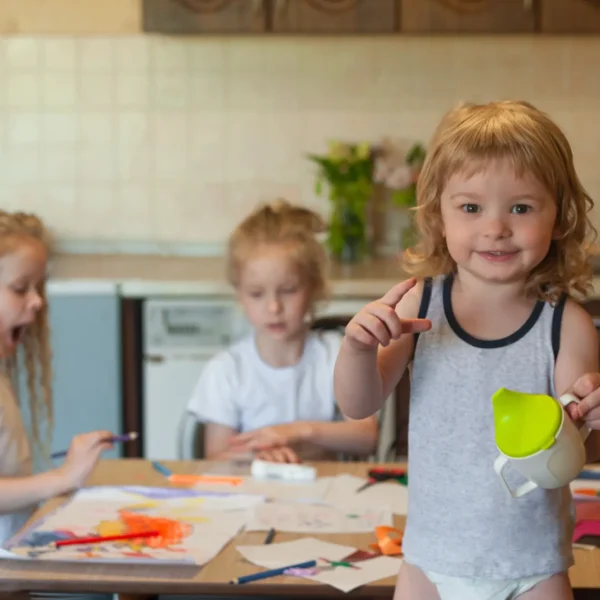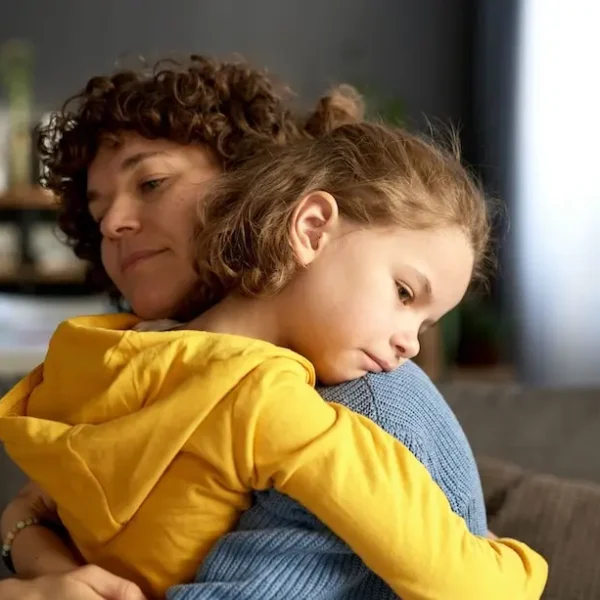
Every child is wired to connect, but not all children connect the same way.
From birth, we are built for social interaction. Social connection is an integral part of who we are as humans. But the how of socializing looks different for every child and your child’s innate personality plays a key role in how they relate to others.
That’s why understanding your child’s natural social style is one of the most powerful tools you can have as a parent. And, on the flip side, why not understanding it often leads to miscommunication and frustration.
In my Everything 3-7 parenting course, I teach a simple framework called “The 3 F’s” – a way to better understand your child’s personality so you can support them more effectively.
The 3 F’s stand for:
- Feisty
- Flexible
- Fearful
Now, these are not rigid labels. Instead, they describe tendencies – your child’s default responses, preferences, and patterns when it comes to relationships, boundaries, and communication.
Let’s take a quick look at each.
The Feisty Child
Feisty kids are bold, spirited, and naturally assertive. They don’t shy away from confrontation and often challenge the rules. You might see them as emotional, difficult, or spirited, but underneath, they’re craving autonomy and connection.
This is the child who pushes back, has big reactions, and often leaves you feeling exhausted, confused, or even worried.
Your goal with your feisty child: Help them channel their strength and boldness into leadership and empowerment rather than control and conflict.
The Flexible Child
Flexible kids are agreeable, adaptable, and often eager to please. They thrive in harmony and often get labeled the “easy” or “good” kids. But their natural tendency to go along with others can sometimes come at a cost and they may downplay their own needs to avoid conflict or discomfort.
This is the child who often follows the group, even when they have a different idea, or has a harder time speaking up for themselves.
Your goal with your flexible child: Help them find and use their own voice, even when it feels uncomfortable, while still staying true to their easygoing nature.
The Fearful Child
Fearful children tend to be cautious, sensitive, and slow to warm. They often hesitate in new environments or with unfamiliar people, and may instinctively say “no” as a way to maintain a sense of safety and control.
This is the child who clings to you at gatherings, is often called “shy”, watches quietly before joining in, and takes their time to feel secure in social situations.
Your goal with your fearful child: Support them in facing fears and discomfort, at their own pace, so they can build confidence without avoiding meaningful experiences.
Keep In Mind
Most children aren’t just one type. For instance, your child might be more feisty at home, and more fearful out in the world. That’s totally normal. The point isn’t to label them, but to better recognize their patterns so you can respond with greater understanding and less frustration.
Each of these personality types comes with its own strengths, challenges, and unique ways of approaching the world. When you know your child’s core tendencies, you can meet them where they are and help them grow into who they’re meant to be.
Do you see your children in these descriptions?
I happen to have one of each and they continue to teach me every day 🙂
Ready to Go Deeper?
Understanding your child’s personality is just the beginning.
In my Everything 3–7 parenting course, I’ll walk you through how to tailor your parenting based on your child’s natural tendencies:
- For feisty kids: channel intensity into leadership, not control.
- For flexible kids: help them hold onto their voice without losing their kindness.
- For fearful kids: gently build courage without pushing too fast.
You’ll learn practical tools – like reflection, role play, and emotional coaching – to help your child navigate everyday challenges: from birthday parties and playground dynamics to bossy moments and finding their voice.
This course is for the parent who worries their child is too shy, too emotional, too combative, or too much of a pushover.
It’s not about changing who your child is. It’s about equipping you with real tools to help them:
- Build on their strengths
- Recognize and manage their challenges
- And develop the life skills they need to thrive as their authentic self
Because every child deserves to feel seen, supported, and empowered just as they are.
The course is just as much for you as it is for your child. I’ll help you break out of frustrating cycles like over-accommodating or constant power struggles, set boundaries calmly and effectively, even in the face of big pushback, and build lasting coping skills that support growth, resilience, and cooperation.
Get the tools to show up with more confidence, clarity, and connection in your parenting.
 Support, Don’t Fix: A Better Way to Parent
Support, Don’t Fix: A Better Way to Parent The One Simple Parenting Shift That Will Have a Huge Impact
The One Simple Parenting Shift That Will Have a Huge Impact



